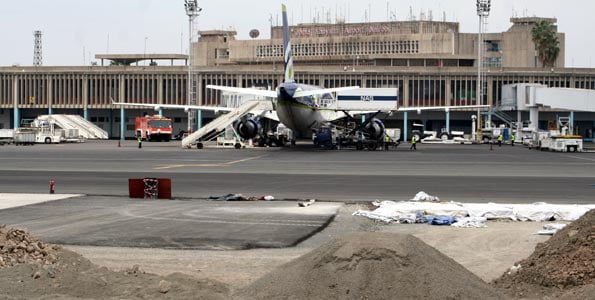
A forensic audit report tabled in the National Assembly last week by Auditor-General Nancy Gathungu has unearthed major irregularities in the financing and hiring of contractors in the state-funded National Fibre Optic Backbone Infrastructure project (Nofbi).
As it turns out, the accurate cost of the multi-billion project under the State Department for ICT cannot be established due to missing loan agreements, lack of assets registry and missing records of the billions paid to the contractors.
Auditor-General Nancy Gathungu notes that the exhibited contract sum for the project’s three phases was Sh20.5 billion in loans procured from China.
However, only Sh10.95 billion of the amount can be ascertained through the documents provided by the state department, leaving Sh9.55 billion unaccounted for.
Past versions of accounts from the ICT state department showed that the project had been financed in excess of Sh30 billion.
It is further noted that the selection of the China government and Exim Bank of China as financiers of the project were shrouded in secrecy.
Ms Gathungu also says that she failed to get an explanation of how three contractors — Huawei, ZTE and Sagem — were tapped to build the multibillion-shilling infrastructure.
The document shows that the project was implemented in three phases.
The project’s phase I was implemented between 2007 and 2009, phase II from 2012 to 2017 and phase II expansion from 2016 to 2020.
The ICT Principal Secretary is accused of signing the commercial agreement before the signing of the framework and concessional loan agreements for Phase II and Phase II.
The total sum payable to Huawei Technologies Co. Ltd for Phase I, Phase II and Phase III was reported to be Sh20.5 billion.
Although the project was implemented in various national government ministries, departments and agencies (MDAs) in the 47 counties, there was no policy or guideline on its implementation outlining the roles of the different entities.
Physical verification of the project’s implementation in 22 counties showed anomalies in various phases.
They included non-functioning, faulty and idle equipment, disconnected power supply and termination of optic fibre and some sites contracting alternative internet providers.
The forensic audit of the Nofbi project was sanctioned by the parliamentary Public Accounts Committee (PAC).
Leader of the Minority in the National Assembly Opiyo Wandayi (Ugunja), who chaired PAC at the time, said that the fibre optic project is a serious scandal whose perpetrators must be brought to book.
“This was a scheme that was well-designed to enable Huawei to come on board exclusively and enable money to be drawn by people hell-bent on siphoning Kenyans off their hard-earned cash,” said Mr Wandayi.
The audit has also queried how the project’s equipment was collocated at Telkom Kenya’s offices, a private company in which the government held a 40 per cent shareholding.
On September 7, 2010, the government, through the ICT ministry principal secretary, signed a two-year operation and maintenance agreement with Telkom at a monthly fee of Sh20.26 million.
There was no collocation agreement to safeguard the project’s assets.
The audit notes that the agreement was backdated to February 11, 2010, resulting in Sh141.83 million irregularly being paid to Telkom.
In total, Telkom Kenya lost Sh575 million while running the fibre optic network contract worth Sh16 billion.
It earned Sh2.33 billion in revenue from leased out Nofbi Phase I infrastructure from June 2011 to December 2021, but incurred Sh2.9 billion in cumulative costs.
The Nofbi infrastructure provided telecoms connectivity across Kenya over a 10-year period.
The Ministry of ICT and Telkom Kenya signed a five-year Nofbi Phase I infrastructure commercialization deal following the expiry of the previous two-year operation and maintenance agreement.
Telkom leased out Phase I infrastructure to other telecommunications companies.
The commercialization agreement stipulated that the government and Telkom Kenya share the net profits received from the Fibre Cable without any active telecom equipment (Dark Fibre) services, where each party was to receive 50 per cent of net profits.
The report states that as of December 2021, a cumulative total of 26,432 kilometres of Dark Fibre was leased out to various entities including the government, Safaricom, Jamii Telcoms, Kenet Links, Wananchi Links, Telkom/Airtel Links, Telkom/Kaysalt Links and Telkom/Sanmarco Links.

















































